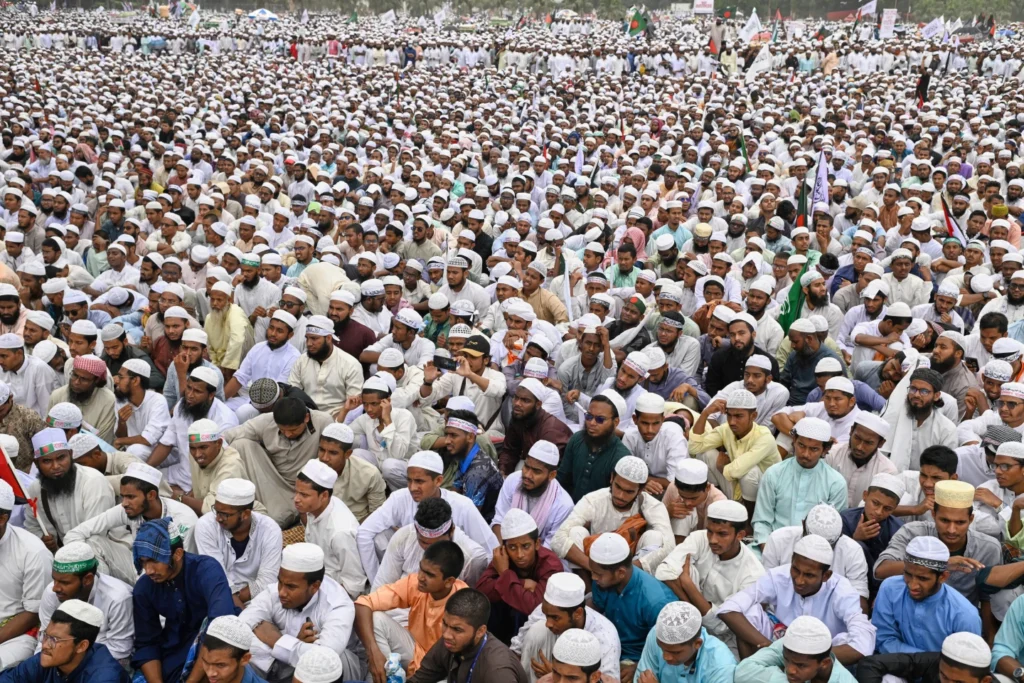DHAKA, Bangladesh — More than 20,000 supporters of the hardline Islamist group Hefazat-e-Islam marched through central Dhaka on Saturday to protest against proposed legal reforms aimed at strengthening women’s rights, including potential changes to inheritance laws for Muslim women. The demonstration underscored rising tensions in the country as conservative religious factions push back against efforts to introduce gender equality into national legislation.

The rally, held near the iconic Dhaka University campus, saw participants carrying placards and banners that read, “Say no to Western laws on our women, rise up Bangladesh.” Chanting slogans and waving religious flags, protesters accused the country’s interim government of undermining Islamic values by considering reforms they say contradict Sharia law.
Mamunul Haque, a senior leader of Hefazat-e-Islam, delivered a fiery address condemning the proposed reforms and demanding the dissolution of the interim reform commission responsible for drafting them. “These proposals insult the beliefs of the Muslim majority,” he said, warning the government of nationwide protests on May 23 if their demands are ignored.
The controversy centers on draft recommendations introduced by a government-appointed commission that suggest expanding rights for women, particularly in matters of property and inheritance. While the reforms are part of a broader initiative to promote legal equality for women of all faiths in Bangladesh, Islamist leaders claim the move is an attack on Islamic jurisprudence.
Haque accused the commission of labeling Islamic inheritance laws as the root cause of gender inequality, calling for its members to be tried for what he described as “blasphemous intentions.” He also demanded the banning of the Awami League, the secular political party led by former Prime Minister Sheikh Hasina, who was ousted in August after a student-led uprising and has since gone into exile in India.
Hasina’s 15-year rule ended amid allegations of widespread repression, including the deaths of hundreds of student demonstrators. Her political opponents, now emboldened by Islamist groups, continue to rally public support against any policies linked to her former government, including ongoing reform initiatives.
Since Hasina’s removal, hardline Islamist factions have grown more vocal in the public sphere, with minority religious and secular groups reporting increased threats and harassment. Rights advocates warn that the backlash against women’s rights reforms signals a broader regression in civil liberties and religious pluralism across the country.
The interim government, led by Nobel Peace Prize laureate Muhammad Punus, has not issued an official response to Saturday’s rally or the demands issued by Hefazat-e-Islam. However, observers note that the administration faces a delicate balancing act between promoting international human rights standards and placating a resurgent Islamist base amid political uncertainty.
As the May 23 deadline approaches, tensions are expected to intensify, with further mass mobilizations likely if the proposed legal reforms proceed without amendments accommodating Islamic legal frameworks.


